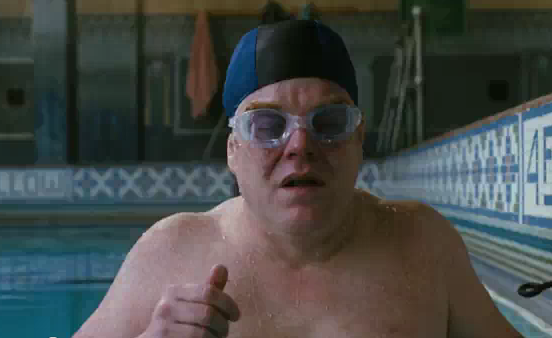Philip Seymour Hoffman Goes Directing

This past weekend, Philip Seymour Hoffman was in Morocco for the Marrakech International Film Festival, explaining what it’s like to star in a movie you’re also directing: “I had to go back and forth a lot.” Hoffman screened his directorial debut, Jack Goes Boating, which came out in the U.S. in September.
Hoffman, who directs plays, said he’s eager to get behind the camera again–he’s just waiting for the right script. “I don’t know what it’ll be,” he said, “but I do like small stories that kind of creep up on you and become bigger than they are—there’s something very tragic happening before your eyes, but you can’t put your finger on it.” Jack Goes Boating is just that, a human-scaled story of two New York couples, one of which is blooming while the other falls apart.
Hoffman added that the double role required him to balance the “social work” of directing against the actor’s solitary pursuit. “Actors are investigators,” he said, an analogy that surely came to light for him during his Oscar-winning turn a few years ago in Capote. “I think that’s why actors are so private, mostly. It’s misunderstood a lot of the time, because actors are in the media. But ultimately, actors really are constantly exploring, finding out that it’s not about them.”
One thing Hoffman is exploring right now is the violin—he’s playing a violinist in an upcoming film about a string quartet. His other spring project is George Clooney’s Ides of March, a political film based on the off-Broadway play Farragut North. Hoffman estimates he’ll devote two months of his life to those two movies—an involvement that will be intense and brief, as opposed to the steadily rewarding time he spends on theater. “When I’m not working on a film, I’m not involved in film. I might be involved in the development of a screenplay, but that’s it,” he explained. “But I’m around theater all the time—directing readings, in readings, actively involved in the theater life without actually being in a play. That’s the beauty of theater: it’s something that can happen right now.”
Still, there’s nothing quite like the grimly satisfying work of the editing room. “The editing was one of the biggest learning curves for me, directing for the first time,” Hoffman said, adding that soundtrack contributions from Fleet Foxes and Evan Lurie helped his cause. “The film is made in the editing room. The shooting of the film is about shopping, almost. It’s like going to get all the ingredients together, and you’ve got to make sure before you leave the store that you got all the ingredients. And then you take those ingredients and you can make a good cake—or not.” The consensus seems to be that Hoffman’s first attempt at this kind of baking went pretty well.






